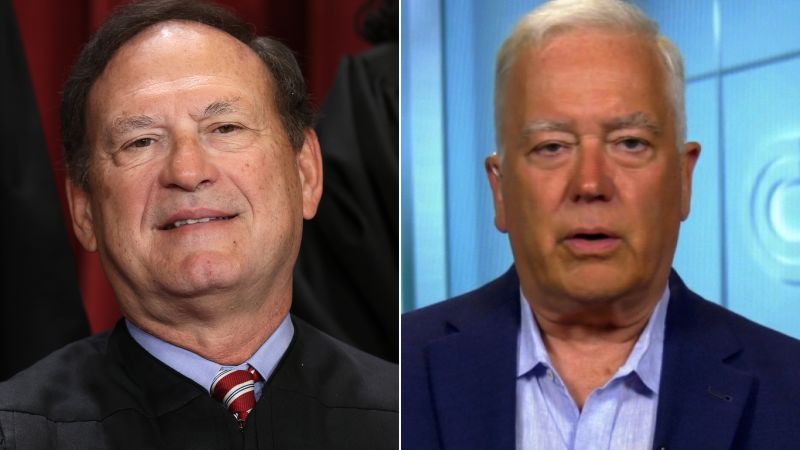Former federal judge John E. Jones III spoke out against Supreme Court Justice Samuel Alito after a New York Times report revealed that an inverted American flag, a symbol associated with the “Stop the Steal” movement following the 2020 election, was flown at Alito’s house in January 2021. Jones criticized Alito for blaming his wife for the display, calling it “beyond the pale.” The controversy surrounding Alito’s actions has reignited concerns about the role of Supreme Court justices in political affairs and the importance of upholding the integrity of the judiciary.
The inverted American flag has been widely adopted by supporters of the “Stop the Steal” movement, which claimed without evidence that the 2020 election was fraudulent and that former President Donald Trump was the rightful winner. By flying this symbol at his home, Alito inadvertently aligned himself with a movement that has been criticized for spreading misinformation and inciting violence. Jones emphasized the need for Supreme Court justices to remain impartial and uphold the rule of law, especially in times of political turmoil.
Jones’s criticism of Alito reflects a broader concern about the politicization of the judiciary and the erosion of public trust in the legal system. Supreme Court justices are expected to adhere to a code of conduct that includes maintaining impartiality and avoiding conflicts of interest. By associating himself with a controversial political movement, Alito has raised questions about his ability to remain impartial in cases that may come before the Court. Jones’s comments highlight the importance of holding judges accountable for their actions and upholding the integrity of the judicial branch.
The controversy surrounding Alito’s display of the inverted American flag also raises questions about the role of spouses in the public lives of public figures. Alito’s decision to blame his wife for the display suggests a lack of personal responsibility and raises concerns about power dynamics within their relationship. In the eyes of Jones and others, Alito’s attempt to deflect criticism onto his wife only serves to further undermine his credibility and integrity as a Supreme Court justice. The incident underscores the importance of transparency and accountability in public office, even in matters as seemingly trivial as displaying a flag.
In the wake of the controversy, calls for Alito to address the situation and explain his actions have grown louder. As a Supreme Court justice, Alito holds a position of tremendous influence and authority, and his actions carry significant weight. By failing to address the controversy surrounding the inverted American flag at his house, Alito is perceived as evading accountability and failing to uphold the standards of integrity expected of a judicial officer. The incident serves as a reminder of the need for public officials to act with transparency and accountability to maintain public trust.
Overall, the criticism of Samuel Alito for flying an inverted American flag associated with the “Stop the Steal” movement highlights broader concerns about the politicization of the judiciary and the erosion of public trust in the legal system. Former federal judge John E. Jones III’s comments underscore the importance of judges upholding the rule of law and remaining impartial in the face of political turmoil. The incident prompts reflection on the ethical responsibilities of public figures and the need for transparency and accountability in public office. As the controversy continues to unfold, it serves as a cautionary tale about the consequences of failing to uphold the integrity of the judiciary and the importance of holding public officials accountable for their actions.


